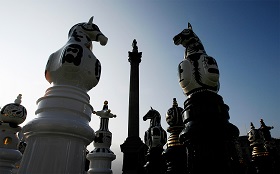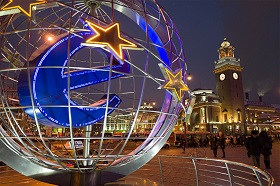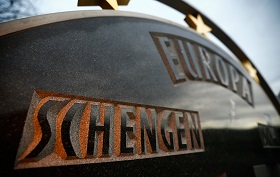The European Union is sometimes referred to as ‘an economic giant and a political dwarf’. This somewhat condescending definition implies that EU member states have always been reluctant to invest significant resources and energy into a common foreign and security policy, especially at the expense of social and economic development priorities. It is also a reference to the fact that Europeans have traditionally relied on US leadership, guidance and protection for most important political and security matters.
The European Union is sometimes referred to as ‘an economic giant and a political dwarf’. This somewhat condescending definition implies that EU member states have always been reluctant to invest significant resources and energy into a common foreign and security policy, especially at the expense of social and economic development priorities. It is also a reference to the fact that Europeans have traditionally relied on US leadership, guidance and protection for most important political and security matters.
A false assumption
This perception is not necessarily accurate, nor is it fair to the EU. Europeans, not Americans, have been leading the global community in many critical areas of international public law ranging from the International Criminal Court to the UN Convention on the Law of the Sea. The European Union remains the largest single provider of technical assistance in the world. Procedures, mechanisms and institutions of the Union have served as sources of inspiration and models for imitation by practically all regional integration projects for the last half a century.
If the European Union is regarded as a political dwarf, it is not because of a lack of political ambition or interest in international affairs. The problem is that the EU leadership was for a long time preparing itself for a global scenario that appeared to be not only highly desirable, but also the most feasible after the end of the Cold War.
The predominant assumption in Europe was that the world would move away from the bitter experiences of the 20th century, that cooperation would gradually prevail over confrontation, that soft power would replace hard power, and that European values would continue to expand geographically to become truly universal.
To the disappointment of many in and outside of Europe, the reality turned out to be very different, and the world of the 21st century produced many ugly examples of the old patterns of behaviour in international politics. Fundamental norms of international law have been regularly breached;
global disarmament remains a dream; regional instabilities around Europe are multiplying; soft power has not replaced hard power as the ultima ratio of world politics; and ‘European values’ have been challenged not only around Europe, but also within Europe itself.
What does it mean for Europe? Should it abandon its vision of a more democratic and more cooperative, less militant and less confrontational world order and look at it as naïve and outdated? Should it accept the geographical limitations of European values and international law by returning to traditional realpolitik in dealing with present and emerging global powers? Should it adapt itself to new harsh rules set by somebody else in a new, harsh world?
A unique actor
Many in Europe today argue that this is the only way to go. However, the last thing that the European Union should do now is to downplay its natural comparative advantages and to compete with other global players on their terms and on their territory.
For many reasons, non-European players will always be better at realpolitik than the EU. For many reasons, the Union is not likely to develop military capabilities comparable to those of US, China or Russia. For many reasons, the decision-making process in Brussels will remain more bureaucratic, protracted and cumbersome than in Moscow, Beijing or even in Washington.
That said, for the foreseeable future, nobody in the world can ignore the unique appeal of the European project; nobody can doubt the attractiveness of the European social model; nobody can question the creative potential of European societies. Although today the EU is arguably going through the deepest and the most dangerous crisis in its entire history, it is definitely not the first – and certainly will not be the last – crisis challenging European civilization.
EU politicians need to get rid of the remnants of the European triumphalism that has dominated their thinking since the end of the Cold War. The central place of Europe in global politics can no longer be taken for granted. Europe has to invest more in its common foreign and security policies, and it should remain what it has always been – a unique international actor very different from ‘regular’ great powers.
Above all, Europeans have to forge a new vision for the future – not only for the European Union itself, but also for the world at large. An alternative to the increasing use of realpolitik is needed today more than ever and Europe is much more likely to generate this than other, non-European global players.
As we know from the Lord of the Rings saga, dwarves, all their imperfections notwithstanding, are definitely not the worst creatures in Middle Earth. The time has come for the European ‘political dwarf’ to grow. Instead of turning into another huge, ugly and arrogant mountain troll, the European dwarf should grow into a powerful wizard instead – one who could help our confused and conflict-torn earth to enter a new epoch of its history.
Source: EU Institute for Security Studies







